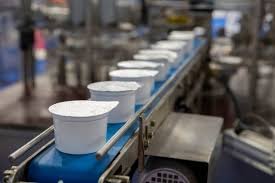Industrial baker

In the bustling landscape of modern food production, few sectors hold as much significance as industrial baking. From the comforting aroma of freshly baked bread to the convenience of packaged snacks, industrial bakers play a pivotal role in nourishing the world’s population. Combining tradition with innovation, these facilities churn out millions of loaves, pastries, and confections daily, utilizing advanced technology and meticulous craftsmanship. In this article, we delve into the intricacies of industrial baking, exploring its processes, challenges, and contributions to global food supply.
Evolution of Industrial Baking:
The history of industrial baking traces back to ancient civilizations, where rudimentary methods of grinding grains and baking flatbreads emerged. Over time, advancements in agriculture and technology enabled the mass production of baked goods. The industrial revolution marked a significant turning point, introducing mechanized processes such as dough mixing, shaping, and baking on a larger scale. With the advent of conveyor belts, ovens, and packaging machinery, bakeries transitioned from artisanal workshops to high-capacity facilities capable of meeting the demands of growing populations.
Key Processes in Industrial Baking:
- Ingredient Handling and Mixing: Industrial bakeries handle vast quantities of ingredients, including flour, water, yeast, fats, and sugars. Precise measurements and quality control are paramount to ensure consistency and flavor. Automated systems streamline the mixing process, combining ingredients into uniform doughs while minimizing human error.
- Proofing and Fermentation: After mixing, the dough undergoes a resting period known as proofing, allowing yeast to ferment and leaven the dough. Temperature and humidity are carefully regulated to optimize fermentation, imparting the desired texture and flavor to the final product.
- Shaping and Molding: Industrial bakeries employ a variety of techniques to shape dough into different forms, from traditional loaves to intricate pastries. Specialized machinery automates this process, enhancing efficiency while maintaining product uniformity.
- Baking and Oven Technology: Ovens represent the heart of any bakery operation, where raw dough transforms into golden-brown delights. Industrial bakeries utilize diverse oven types, including convection, deck, and tunnel ovens, each tailored to specific products and production volumes. Precise temperature control and airflow ensure consistent baking results across large batches.
- Cooling and Packaging: Once baked, products undergo rapid cooling to stabilize their structure and preserve freshness. Automated conveyor systems transport goods to packaging stations, where they are sealed, labeled, and prepared for distribution. Advanced packaging materials protect against moisture, air, and physical damage, extending shelf life and enhancing product quality.
Challenges and Innovations:
Despite its advancements, industrial baking faces several challenges in meeting evolving consumer demands and market dynamics. Rising ingredient costs, fluctuating commodity prices, and stringent regulatory requirements pose significant hurdles for manufacturers. Moreover, changing consumer preferences towards healthier, allergen-free, and sustainable products necessitate constant innovation and reformulation.
In response to these challenges, industrial bakeries are embracing technological innovations to enhance efficiency, sustainability, and product quality. Automated production lines equipped with sensors and data analytics optimize resource utilization and minimize waste. Moreover, advancements in ingredient sourcing, such as alternative flours and natural additives, cater to diverse dietary preferences without compromising taste or texture.
Contributions to Global Food Supply:
Industrial baking plays a vital role in ensuring food security and accessibility worldwide. By harnessing economies of scale and efficient production processes, bakeries produce affordable and nutritious staples that sustain populations across diverse socio-economic backgrounds. Moreover, the convenience and long shelf life of packaged baked goods make them ideal for distribution in remote areas and emergency relief efforts.
Furthermore, industrial bakeries contribute to job creation and economic development, supporting local communities through employment opportunities and supply chain partnerships. From farmers cultivating wheat fields to truck drivers delivering finished products, the bakery industry fosters collaboration and prosperity along its value chain.

Conclusion:
In conclusion, industrial baking represents a harmonious blend of tradition, technology, and innovation, supplying the world with an array of delicious and nutritious baked goods. From humble beginnings to towering production facilities, the journey of industrial baking mirrors humanity’s quest for sustenance and progress. As we navigate the complexities of a changing world, industrial bakers stand at the forefront of feeding a growing population, one loaf at a time.



